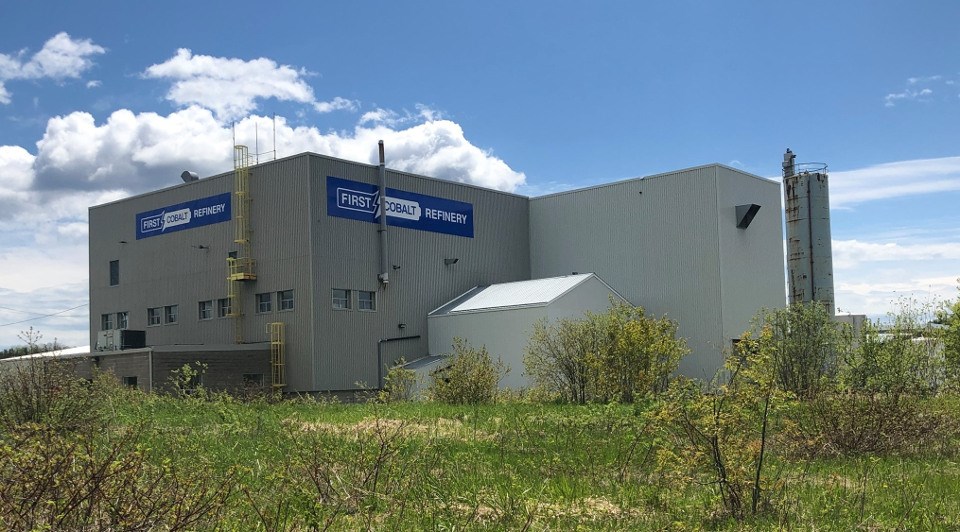The provincial and federal governments are providing First Cobalt Corp. with $10 million to help the company establish North America's first battery-grade cobalt sulfate refinery in North Cobalt, Ont.
The facility will be capable of producing 25,000 tonnes of cobalt sulfate annually, representing five percent of the global market for refined cobalt.
“Upon completion of the retrofit of the refinery, First Cobalt will be the only permitted refiner of cobalt sulphate in North America, making the company a key player in the electric vehicle value chain,” said Minister of Energy, Mines, Northern Development and Indigenous Affairs Greg Rickford during a virtual funding announcement Wednesday morning. “Building electric vehicles here in Ontario is a critical component in securing future investments across the electric vehicle value chain, and this will include opportunities in sectors ranging from the province’s critical mineral sector, world-class auto parts suppliers, battery manufacturing and many other activities.”
The $5 million contribution from the Northern Ontario Heritage Corporation Fund is a non-repayable grant from the province, with the other $5 million being provided through FedNor in the form of a repayable loan.
“We are helping First Cobalt get North America’s only cobalt refinery online, which will allow them to capture five per cent of the world’s market for refined cobalt,” said Sault Ste. Marie MP Terry Sheehan, who serves as parliamentary secretary to the economic development minister. “A strong domestic supply for critical resources needed to produce electric vehicle batteries is vital to the long-term success of Canada’s auto industry, and to help us grow our economy in its entirety.”
The project is expected to create 100 jobs, including 46 full-time jobs.
